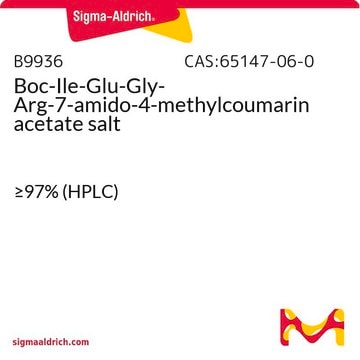SML0083
GSK 1059615 sodium salt hydrate
Synonym(s):
(5Z)-5-[[4-(4-pyridinyl)-6-quinolinyl]methylene]-2,4-thiazolidinedione sodium salt hydrate
About This Item
Recommended Products
form
powder
color
yellow
solubility
H2O: ≥8 mg/mL
originator
GlaxoSmithKline
storage temp.
2-8°C
SMILES string
O.[Na+].O=C1[N-]C(=O)C(\S1)=C\c2ccc3nccc(-c4ccncc4)c3c2
InChI
1S/C18H11N3O2S.Na.H2O/c22-17-16(24-18(23)21-17)10-11-1-2-15-14(9-11)13(5-8-20-15)12-3-6-19-7-4-12;;/h1-10H,(H,21,22,23);;1H2/q;+1;/p-1/b16-10-;;
InChI key
KKSRFFGUIONCPS-FLPKAINGSA-M
Biochem/physiol Actions
Features and Benefits
Disclaimer
Storage Class Code
11 - Combustible Solids
WGK
WGK 3
Flash Point(F)
Not applicable
Flash Point(C)
Not applicable
Certificates of Analysis (COA)
Search for Certificates of Analysis (COA) by entering the products Lot/Batch Number. Lot and Batch Numbers can be found on a product’s label following the words ‘Lot’ or ‘Batch’.
Already Own This Product?
Find documentation for the products that you have recently purchased in the Document Library.
Our team of scientists has experience in all areas of research including Life Science, Material Science, Chemical Synthesis, Chromatography, Analytical and many others.
Contact Technical Service






